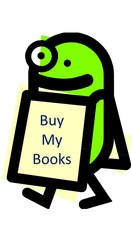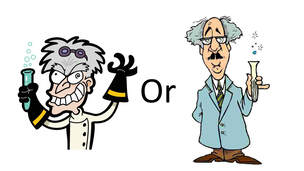|
Continuing the re-runs of our series of marketing blogs first published in February 2021  I’m starting this week’s blog with some basic maths for you. Let’s say you write at a rate of 1,000 words every two hours and you produce a book that is around 90,000 words long. That means that it took you about 180 hours to write. Those 180 hours may be spread over a few weeks, a few months or even a few years, but it doesn’t matter. If you were to pay yourself the UK national minimum wage (July 2022) for your work, you would get £9.50 per hour if you are over 22. So, multiply the number of working hours by the hourly rate and it means that you need to receive £1,710 in “royalties”, just to pay you for the time taken to write your book, which doesn’t include time spent editing, re-writing, proofreading, formatting, up-loading and marketing. But we’ll keep it simple and call it £1,700. If you sell your book as an ebook on Amazon for £4.99, which is a typical price for an Indie author, you will receive about £3 in royalties, which means you need to sell 566 books just to cover your wages for writing the book. "You need to sell 566 books just to cover your wages." But if you are signed to a publisher, you can expect to receive about 50% of your royalties, because the publisher takes the other 50% to cover the work they do (they don’t work for minimum wage). That means you need to sell 1,133 books to earn £1,700. That doesn’t sound too bad, does it? There are many self-published authors who sell a lot more books than that. Actually, that is quite a lot of books for an unknown author to sell. So, the unknown author has to find a way to become a “known” author and that is where marketing comes in. There are 4,000 new books published every day, that’s over 115,000 a month. Most of those books will be by unknown authors and most of those authors will remain unknown – unless they learn how to market their product. Trust me, 1,133 people aren’t going to stumble across your book by accident.  If you don’t believe me, just upload your book onto Amazon, don’t do anything else or tell anyone about the book and see how many copies you have sold after 6 months. I can tell you exactly how many it will be – 0. But if I’ve got a publisher, why do I need to do the marketing? A good question. All authors, even those signed to big publishing houses, have to do some marketing – remember it’s the authors that do the book tours and radio interviews, not the publishers, and those are marketing activities just as much as the sort of things I’m going to talk about. But the short answer is that your publisher has several authors on which to concentrate, but you can concentrate on you. Double the marketing activity means double the likelihood of selling some books. You have to work as a team on this to get the best results. But this blog is actually aimed at all Indie authors, so this is aimed at the self-publishing community just as much as at the published community. "So this is aimed at the self-publishing community" The problem is that marketing costs money. How much it costs will depend on a number of things. If you are good at it, it may cost you nothing because your costs will be more than covered by your income. If you aren’t any good at it, it could cost you quite a lot of money to get somebody else to do it for you. This is where “social media marketing” comes in, because that is the cheapest form of marketing there is, short of standing on street corners and shouting about your book. However, just putting something on Facebook or Tweeting about your book isn’t going to work. Why not? Let me use an analogy.  Let’s say you live in a house and on the wall outside your house you hang a loudspeaker. Inside you have a microphone connected to the speaker (for the nerds, yes it is connected through an amplifier). Then you close the curtains so you can’t see the street. Now you stand in your room, speaking into the microphone saying “buy my book” over and over again. Will this sell your book? First of all, you don’t know if there are any people outside your house to hear your announcement. At some times of the day the street might be quite busy, but at others it will be empty. Secondly, even if people are there, you don’t know if they read books and, thirdly, even if they read books, you don’t know what sort of books they read. If they don’t read books like yours then you are wasting your time. "Your announcements are getting lost amongst theirs." But it’s worse than that. Because there are 99 other houses in your street and in each one of them there lives another author and all 100 of you are doing exactly the same thing, so your announcements are getting lost amongst theirs and theirs are getting lost amongst yours. And that is why social media marketing fails for so many authors. Which means that just posting on Facebook, Instagram or Twitter is probably not going to sell you many books. Which brings me to paid services.  There are dozens, even hundreds, of online suppliers offering to Tweet your book to their gazillion followers – at a price. The problem is that they are doing exactly what I have described in my analogy. Which means you are paying them to do something that you already know doesn’t work. It doesn’t matter how many followers they have, or how many likes their FB and Insta accounts get, if they aren’t reaching the right people, they aren’t selling your book for you. Our recommendation is not to pay for services like that. "you are paying them to do something that you already know doesn’t work" But if social media marketing doesn’t work, why do so many businesses spend so much money on it? Because it does work, but not if you just stand in your house shouting “buy my book”. There is a science behind social media marketing and if you learn how to use that science, your book will sell.  If you have been following this series of blogs you will know that we are great advocates of “learning” and this is something else you can learn about. This course with Future Learn is free and serves as a good starting point. It is only two weeks of study (you could complete it in a day if you felt like it) and you can sign up from anywhere in the world. And it isn’t just for authors – any small business can use social media marketing. The best use of social media marketing isn’t actually to sell books – it’s to raise “brand awareness”. It’s about getting your name and the title of your book into people’s memories so that when they go looking for books to buy on actual book selling sites, they will recognise your name or your book’s title and think “I know his/her name” Or “I know that title”. They then think “Why do I know that name (or title)? I must have heard something about it. I wonder if it's any good”. And that is where your sales “closure” kicks in – the book’s blurb and it’s few pages on “Look Inside”. But if you’ve gone for obscure or weird usernames on Facebook, Twitter or Insta, then you may have shot yourself in the foot because the name under which your write may not be instantly recognisable – so think about that. In last week’s blog I listed the 6Ps of marketing and I said I’d return to them. So, I’m going to start with that first P – product and how it relates to social …. Tell you what, let’s call it SMM for short. What is your product?  Yeeeees, it’s a book, we know that. But is it just a book? For example, is it fiction or non-fiction? There’s no point in trying to sell a fiction book to someone who only reads non-fiction. Next, what genre is it? Some people read only one genre, some read a few different genres and some people read anything and everything. The problem is, you have to assume that they only read one genre and that it is yours. "This is called audience targeting" So, what does your reader look like? If you write in the same genre as you read, then they may be people just like you. But if you write in several different genres, you may have several different types of reader and you need to address each one in a different way. You won’t attract a reader of Young Adult (YA) fiction in the same way as you attract a reader of military history – they are two very different people. This is called audience targeting. If you know what your audience looks like and behaves like, then you can target them better. You can be online, on Twitter for example, at the same time of day as them. You can shape your marketing messages in a way that appeals to them. Most importantly, you can engage with them.  Because social media marketing isn’t about advertising, it is about engagement. If you can establish a relationship with your target audience – even if it is only via a social media platform, they are more likely to take an interest in you and more likely to take an interest in your work. I’ll give you a frinstance (as my Mum called it). If your ideal reader is likely to have an interest in brewing craft beer and you have an interest in brewing craft beer, you can engage with them by talking about craft beer brewing. The fact that you are also an author becomes incidental. One day they may decide to look at your profile on whatever social media platform you are using and then they will discover that you are an author, at which point they may take a look at your book(s). But you haven’t forced it on them. "and that’s the battle half won." But, importantly, if they’re browsing Amazon looking for new books they may come across your name and remember you as a nice person who likes craft beer brewing as much as them – and they’ll take a look at your books. Or, they may see one of your actual announcements about your book and say to themselves “Oh, I didn’t realise he/she was an author as well as being a craft beer brewing enthusiast. I wonder what his/her books are like?” and they might take the time to find out. Because you have done your research on your “ideal” audience, the chances are they will read the sort of books you write and that’s the battle half won. Does this sound like manipulation? We’d prefer to think of it as understanding human behaviour. In any business of any size, there are people earning salaries far bigger than mine who are “understanding human behaviour” and using it to sell you something. At least you do have a genuine interest in craft beer brewing (or whatever). BTW, engagement doesn't mean just asking questions, as many people do on Twitter or Facebook. Unless you get involved in a conversation about the answers, you aren't engaged, you are just annoying people by not engaging.  So, a bit of homework for you for next week. Draw a pen picture of your ideal reader. Here’s a few things for you to consider:
 Identifying your target audience is an important first step in your marketing strategy. Strategy: that’s a big scary word. Don’t let it scare you though because it is far easier to understand than you may think. It is the implementation of the strategy that is actually the hard part. But I’m getting ahead of myself. See you next week (I hope). If you have enjoyed this blog or found it informative (both, we hope) and you want to make sure you don't miss the next edition, just sign up for our newsletter. We'll even send you a free ebook for doing so. Just click the button below.
1 Comment
25/6/2025 07:08:06 am
Looking to publish your book? We make the process simple and stress-free. From editing and proofreading to cover design, formatting, and publishing across major platforms, we guide you through every step. Whether you're aiming for print, ebook, or both, our expert team is here to help you bring your vision to life. Let’s turn your manuscript into a published book you can be proud of.
Reply
Leave a Reply. |
AuthorThis blog is compiled and curated by the Selfishgenie publishing team. Archives
June 2025
|
 RSS Feed
RSS Feed